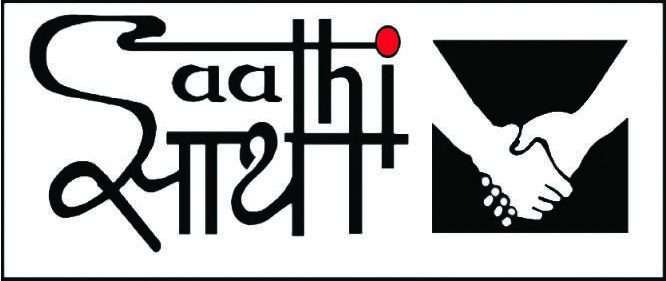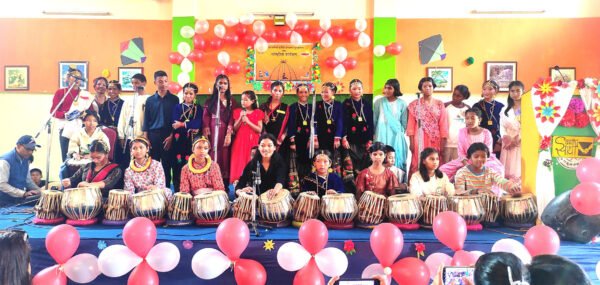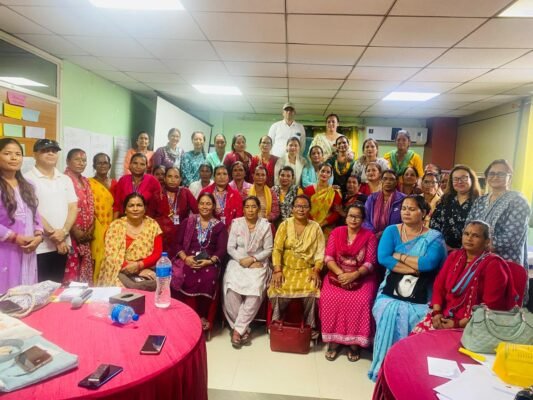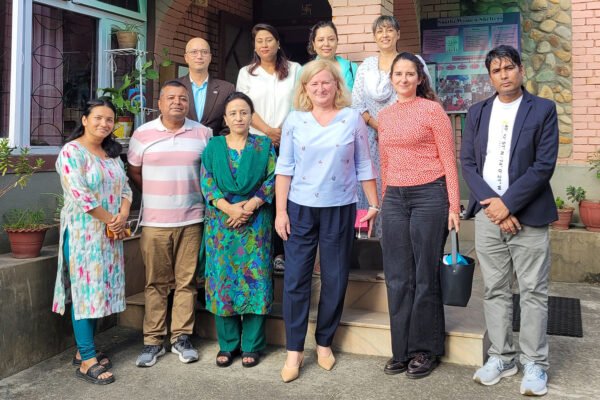Overview
The CSOs Capacity Strengthening Program plans to develop a cross-learning approach towards the enhancement of child agency & child participation through the strengthening of civic spaces and addressing existing inequality and discrimination based on gender, caste/ethnicity, religion, age, disability, geography, economic status, climate crisis and more.
Focused on strengthening child rights governance and child protection measure the intervention aims to address the capacity gap of the civil society organizations for making their policies plans, programs, and infrastructures more inclusive and equitable.
The main strategy of this intervention is gender equality, which is a priority as it is a fundamental human right. However, gender inequalities still exist and disproportionately affect sexual and gender minorities especially girls and women.
The Swedish International Development Cooperation Agency (SIDA) funded Civil society organizations (CSOs) strengthening program is being implemented under the auspices of Save the Children (SC) Nepal supports civil society organization’s efforts to strengthen their own development effectiveness, including transparency and accountability.
Recently, Covid-19 and the climate crisis have amplified existing gender inequalities. In response, this program seeks to eliminate gender inequalities through gender mainstreaming from all the SIDA CSO Strengthening program collaborators.
All partner CSOs undertake an Intersectional Gender Analysis (IGA) of the program to ensure consistent gender mainstreaming across all outcomes under this intervention. The outcome of the IGA is to develop a combined annual gender equality action plan which is monitored and tracked every quarter.
Sida CSOs strengthening program is a regional and multi-country, integrated approach in Nepal. It comprises of 13 civil society organizations as partners who are working together to build their capacities through cross-learning and synergy-building approaches in advancing the rights and agency of the children and retaining the civic space for child rights governance in Nepal. The 5-year (2022-2026) program addresses and seeks to eliminate gender inequalities in the context of their operations. This requires gender mainstreaming from all Sida CSO partners, and targeted programming to promote gender equality where possible.
Saathi is a technical partner for leading and ensuring gender equality by focusing on a gender transformative approach and will be leading the IGA process in the first year (2022 AD) of the program intervention. Similarly, Blue Diamond Society (BDS), voicing for the rights of sexual and gender minorities, will be supporting Saathi. BDS will technically support Saathi to ensure issues of Lesbian, Gay, Bisexual, Transgender, Intersexed, Queer plus (LGBTIQ+) are not missed during IGA tools development, analysis and action points using their expert lenses. Thus, one or more dedicated staffs/members from BDS will be engaged as a core team of IGA.
Objectives
The objective of the gender audit is to assess CSO’s internal governance processes, procedures, structures, culture, program, planning and activities from a gender perspective as sustainable as possible. The extended objectives of the gender audit tools are:
i. To ensure meaningful participation of children impacted by discrimination and inequalities by addressing gender gap and mainstreaming them in agency building and child rights interventions.
ii. To capacitate CSO advisors, management, board, and staffs for the promotion of gender responsive behaviors, policies and programming.
iii. To monitor and evaluate the CSO policy, program and practices with a gender lens and promote a gender transformative approach.
iv. Encouraging a more inclusive, vibrant, and strong civic space by enhanced representation of women, non-binary, and person with disabilities in CSO organizational structure, human resource constituents.
v. To identify the problems and challenges based on gender audit, address them and take them as policy feedback for future planning and programming.
vi. To make the CSO activities gender responsive, and work towards a transformative intervention with special focus on women and children impacted by inequality and discrimination.
vii. To examine how gender intersects by age, disability, language, location, ethnicity, socioeconomic status and sexuality on organizational access and delivery of policies and programs.
Project Locations
Bagmati Province: Kathmandu
Karnali Province: Dailekh, Jajarkot and Kalikot
Madhesh Province: Saptari, Mahottari and Sarlahi
Technical Partners & Implementing partners
Technical Partners: Saathi (Gender) & Blue Diamond Society (LGBTIQ)
Implementing partners:
Consortium of Organizations Working for Child Participation (CONSORTIUM)
Child Workers in Nepal (CWIN) Kathmandu)
Children as Zone of Peace National Campaign (CZOP)
Youth Alliance for Environment (YAC) Kathmandu
Karnali Rural Development & Research Center (KIRDARC)
Campaign for Child Rights in Karnali(CCR)Surkhet
Hilly Region Development Campaign (HRDC) Jajarkot
Rural Women Upliftment Association (RWUA)Sarlahi
Sabal Nepal (Saptari)
AASMAN Nepal (Mahottari)
Everest Club (Dailekh)
Key Achievements/Program Outcomes
- Civil Society Organizations are well functioning and have increased their independence, sustainability, and competencies as child rights actors in a changing context.
- Children express their views and organize themselves around issues of their concern.
- CSOs advocate and hold states accountable for the fulfillment of children’s rights and equitable access to quality systems and services
- CSOs have an opportunity for civil society influence, and Save the Children act to uphold and expand civic space
Activities under Sida CSOs strengthening program
A core team has been formed for intersectional gender analysis (IGA). The core team comprises of:
Two technical staffs, Saathi
Three technical staffs/members, BDS
Two technical staff/members, NFDN
Three Program Manager, GESI, MEAL, SIDA CSO, Save the children
- Core team conducted a brief literature review of available secondary data on gender equality in the country/region/sub-region, including internal and external assessment reports, survey data, research reports, and scholarly articles. By using the guiding questions to structure the analysis and added to and adapted these as relevant to the program context. Partners were asked to collect national level sources. Countries that have implemented Young Voices were asked to consider the relevant gender data. And draw on the Child Rights Situation Analysis, previous Sida CSO reports, and the Sida CSO baseline findings anywhere possible.
- Saathi, in coordination with Blue Diamond Society, organized a 2-Day National Consultative Workshop in Kathmandu on 3-4 August and two provincial workshops, one in Madhesh Province (21-22 August) and another in Karnali Province (25 to 26 August).
- The consultations were aimed at gathering feedback and validating the literature review done as a part of the intersectional gender analysis report. The consultations also collected new information and input from the stakeholders through focused group discussion to assess the intersecting and multiple discrimination faced by the children that compromise their rights and agency.
- The core team produced and submitted a written summary of the key actions required to address the identified gender gaps.
National level consultation meeting on Intersectional Gender Analysis
4th -5th August,2022 at Hotel Basera. Kathmandu
Provincial level consultation meeting on Intersectional Gender Analysis
21st-22nd August 2022 at Hotel Vinayak, Mahottari
National level consultation meeting on Intersectional Gender Analysis
25th– 26th August,2022 at Hotel Shuva, Surkhet
- Saathi and BDS as gender technical partners jointly conducted Gender Equality and Social Inclusion Audit of 13 organizations participating in Sida CSO strengthening program from November and December 2022. It is to mainstream the inter-sectional gender approach.
Outcome:
Gender Equality and Social Inclusion audit is to assess CSO’s internal governance processes, procedures, structures, culture, program, planning and activities from a gender perspective. It aims to encourage CSO’s activities, their organizational practices, policies, plans and programs gender responsive and sustainable. In addition, it establishes a baseline against which progress will be measured overtime in respective organizations. Based on the gaps identified, all partner organizations will formulate an action plan and integrate GESI in their structure, policy, programs, and implementation.
All Save the Children-funded programs consider gender sensitive as a minimum standard and strive toward being gender transformative.
Gender Audit establishes a baseline against which progress will be measured overtime in respective organizations.
For this purpose, Saathi and BDS facilitated the process using GESI Audit tools by reviewing the existing policies of partners, administering the questionnaire to board members and staff to filled. The CSO produced 13 GESI action plans at the end of the audit which will be monitored in quarterly basis.
Gender terminologies defended in Sida CSOs program documents are as follows:
Gender sensitive
Interventions ensure the different needs, abilities, and opportunities of girls, boys, non-binary children, women, and men are identified, considered, and accounted for.
Gender Transformative
Interventions utilize a gender sensitive approach and promote gender equality, while working with key stakeholders to identify, address, and positively transform the root causes of gender inequality for girls, boys, non-binary children, women, and men.
Intersectionality
Intersectionality is the acknowledgement that girls, boys, non-binary children, women, and men have their own unique experiences of discrimination and oppression because of which, the intersections of their gender, race/ethnicity, socioeconomic class or caste, sexual orientation, dis/ability, location, religion, etc. Girls often face multiple layers of discrimination due to their age and gender. E.g. a girl who lives in poverty and with a disability risk facing multiple barriers to participation in family and public life and access to services including education and Sexual Reproductive Health Rights (SRHR) etc. An intersectional lens must be applied in gender analysis.
Gender mainstreaming
Gender mainstreaming means integrating a gender equality perspective at all stages and levels of policies, programs, and projects. It is a means to ensure that gender inequality is not perpetuated and that girls, boys, non-binary children, women, and men all equitably participate in and benefit from our interventions. Gender mainstreaming requires an intersectional gender analysis to identify gender gaps and solutions for how to address these.
Gender analysis
An intersectional gender analysis is the collection and interpretation of data and information through a gender lens. A gender analysis will collect data and information about the specific situations, roles, needs, and opportunities of girls, boys, non-binary children, women, and men, and non-binary adults, with the objectives of:
- Identifying the differences and gaps between them.
- Understanding why those differences and gaps exist.
- Identifying where to address gender gaps and inequalities across a program and consider whether a stand-alone gender equality objective/result is feasible.
- Identifying specific approaches and activities to address the gender gaps in the proposed program.
Designing an action plan per program, by listing the specific actions needed to adapt programming so that it meets the specific needs of girls, boys, non-binary children, women, men, and non-binary adults, in an equitable manner and, where possible, includes activities that address the root causes of these differences.




